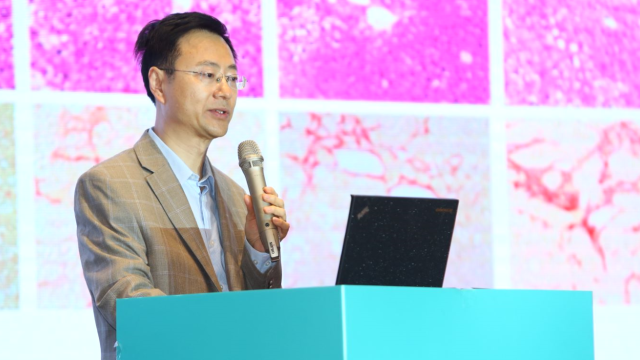Modulation of Risks of Gastric Cancer after H.pylori Eradication
梁伟强
时长:23:13
分会场:2019中国肠道大会 - 消化道肿瘤大会
Helicobacter pylori (HP) infection is the most important cause of non-cardia gastric cancer, which is triggered by chronic gastric inflammation. Eradication of HP could reduce the risk of subsequent gastric cancer by about 50%, but not totally eliminate the risk. In particular, patients with advanced pre-neoplastic gastric lesions may still progress to gastric cancer development despite successful HP eradication. In this regard, we have recently shown that eradication in older patients (>60 years) could still result in significant reduction in gastric cancer risk [1]. The chemopreventive effects, however, would be more obvious with longer time lapse (>10 years) from eradication therapy. Apart from HP eradication, we have also evaluated the roles of other potential chemopreventive agents on post-HP eradication gastric cancer development. Aspirin is one of the most frequently used chemopreventive agents, particularly on prevention of gastrointestinal cancers. Our territory wide cohort study showed that the use of aspirin was associated with a frequency-, dose-, and duration-dependent reduction in gastric cancer risk after HP eradication [2]. The effect was most prominent in those who used aspirin daily or for five or more years. Moreover, the use of metformin was also found to reduce the risk of gastric cancer development among diabetic patients who had HP eradicated [3]. In contrast, gastric atrophy is generally considered to be an important risk factor for gastric cancer. It however remains controversial whether the use of proton pump inhibitors (PPIs), with potent acid suppressive effects, would result in a higher risk of gastric cancer. Past studies are largely confounded by the difference in HP infection statuses and relatively short follow up duration. Our recent study showed that even after H. pylori eradication, long term use of PPIs are still associated with an increased risk of gastric cancer by about two-fold [4]. Subgroup analysis further showed that the increased cancer risk was only observed among those non-aspirin users but not aspirin users. Hence, long-term PPIs could still be used cautiously among high risk patients. In conclusion, we have shown in this series of studies that chemopreventive agents (aspirin and metformin) as well PPIs could further modulate the risk of gastric cancer development after HP eradication.
"伟强教授现任李树芬医学基金会胃肠学教授和香港大学李嘉诚医学院人力资源副院长。同时,梁教授担任香港玛丽医院综合内视镜中心联合主任。梁教授1991年毕业于香港中文大学内科学院,并于威尔士亲王医院完成住院医师和专科培训。随后,梁教授赴美国贝勒医学院消化内科进行海外深造。
梁教授在胃肠病学和内视镜检查领域有广泛的研究,包括幽门螺杆菌和胃部癌变,炎症性肠病,胶囊内镜检查,大肠镜筛查和胃肠癌的表观遗传变化。梁教授发表了大量文章,被引用次数超过12,000次,H因子为59(Scopus)。梁教授担任《Helicobacter》,《Best Practice & Research – Clinical Gastroenterology》, 《Journal of Digestive Disease》和《中华消化杂志》期刊的编委会成员。梁教授曾任2013-2015年度香港炎症性肠病协会主席,2017年度亚太消化病周科学委员会主席。
"


